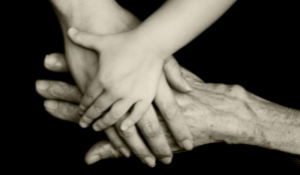Like all industries, the nonprofit sector is trying to put the pandemic behind them. During and immediately after the height of the pandemic government subsidies buoyed up many nonprofits through programs like the Paycheck Protection Program (PPP), Higher Education Emergency Relief Fund (HEERF), Employee Retention Credit (ERC), and Shuttered Venue Operators Grant (SVOG). When asked about their organization’s financial position as the pandemic began to wane in the fall of 2022, 49% reported being somewhat or very concerned about their financial condition. In a recent follow-up survey, however, overall satisfaction in the past three months has increased considerably (by 64%), while those who are somewhat or very concerned has remained nearly the same (48.71%).
The COVID-19 pandemic disrupted our nationwide educational system. Closures rattled public confidence in local schools. Familiar routines were shattered. Interest in home schooling and other alternatives exploded. All of this loosened the status quo's grip on school norms, parental expectations, and the public imagination. Until March 2020, American schooling looked much like it had in 1920. Students set out from their homes to school in the early morning, sat in front of a teacher in primary school or a series of teachers in secondary school, sporadically used the latest technologies, and then headed home. Dress codes, popular pedagogies, the number of adults in the building, and the technology may have changed, but what students and teachers did each day did not.
Topics: education, Covid-19/Pandemic
The pandemic significantly affected all of us in one way or another but decimated our senior population. Social workers report that elderly survivors have been left with lingering feelings of dread and abandonment that continue to affect the quality of the little life they have left.
Total Number of COVID-19 deaths in the U.S.
1,101,953
85 and older - 295,010
75-84 --- 287,729
65-74 --- 248,635
Total Over 65 831,374 (75%)
Social work is an evolving profession and every year new challenges emerge. When December rolls around it is our custom to interview three experienced social workers (one from the East Coast-one from the West Coast-and one from Nebraska) and ask them to share any new themes that may have emerged in their practices.
Topics: social workers, social issues, Covid-19/Pandemic
The country’s psyche has put the pandemic aside. Even with the virus still circulating Americans have put away their masks and come out to play. This ability to quickly recover from even the most devastating traumas marks the American character. We’re always ready to move on to new business.
Topics: Nonprofit General, what social workers do, Covid-19/Pandemic
Tom Wolfe labeled the baby boomers the "Me" generation and the label has been applied to every generation since. GenZers and Millennials have been accused of pathological self-involvement and narcissism resulting from the "helicopter" parents that raised them. This blog thinks, however, that this continued characterization is unfair and would like to recount a story about kindness and empathy across generations.
Topics: Elderly/Aging Long Term Care, what social workers do, Covid-19/Pandemic
As so often happens in our modern 24-hour news cycle the latest crisis pushes any ongoing crisis off the front page and out of public consciousness. COVID 19 and January 6th have all but eliminated the opioid addiction epidemic from our front-page view. However, the crisis has not gone away. Provisional data from CDC’s National Center for Health Statistics indicate that there were an estimated 100,306 drug overdose deaths in the United States during 12-month period ending in April 2021, an increase of 28.5% from the 78,056 deaths during the same period the year before. The new data documents that estimated overdose deaths from opioids increased to 75,673 in the 12-month period ending in April 2021, up from 56,064 the year before. Overdose deaths from synthetic opioids (primarily fentanyl) and psychostimulants such as methamphetamine also increased in the 12-month period ending in April 2021.
Topics: Government, mental health, Covid-19/Pandemic
Health care social workers are reporting an uptick in patients complaining of persistent symptoms after recovering from a bout with COVID-19. Social media has already named these unconfirmed diagnoses Long Covid, and the public is beginning to take their own pulse and check fitness stats on their iPhones and Fitbits. Social workers tell us it is too early to scientifically ascertain whether these reported symptoms are an unexpected permanent consequence of the SARS-CoV-2 infection or if the symptoms are a variety of the immediate consequences of COVID-19.
Topics: Covid-19/Pandemic
How Nonprofit Organizations are Surviving Post Covid-19
The coronavirus pandemic has presented nonprofit organizations with new and unexpected challenges. To address these challenges, several sectors have redesigned their operations and concentrated their efforts on education and safe pandemic awareness.
They've discovered new ways to dispel myths, validate facts, and disseminate them to other organizations and individuals in a variety of ways. Several organizations that had already implemented case management software were able to continue working remotely while avoiding infection risk.
During the COVID-19 crisis, almost 9.6 million Americans lost their jobs. Searching for the right job is difficult, with continuous rejection and unpleasant interviews. Job-search stress has been connected to mental health problems like depression and anxiety. Fortunately, non-profit organizations are working to open new doors for unemployed people to help them find a job. Nonprofits that specialize in workforce development provide job seekers with the resources and training they require to find work and succeed. A startling number of individuals are now receiving assistance from nonprofits that focus on workforce development.
Let's explore how unemployment contributes to mental health concerns and how nonprofits assist job seekers in finding the right job.
Topics: Nonprofit General, mental health, workforce development, Covid-19/Pandemic











